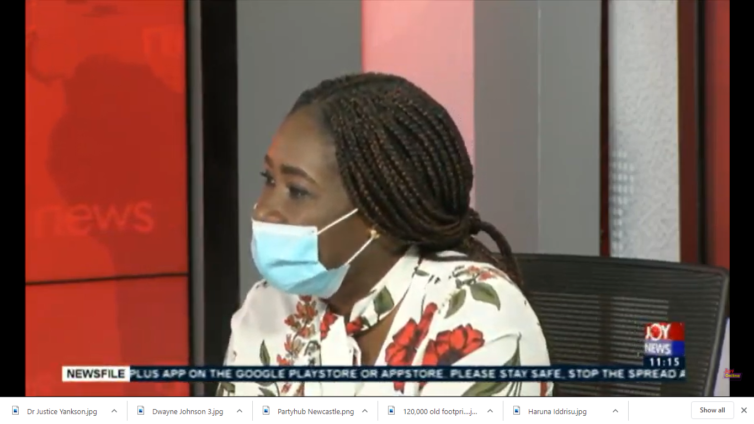A Senior Lecturer at the Department of Economics, University of Ghana, Legon, has called on Ghanaians to remain calm and desist from speculating about the Cedi currency depreciation.
Speaking on Newsfile, on Saturday, Dr Priscilla Twumasi Baffour explained that speculation activity about the cedi depreciation or dollar growth will further affect the currency and have adverse effects on importers who rely on the dollar to trade.
She told the host Emefa Apawu that “to be honest, the dollar in recent times has gained a lot of value globally, so you see that all other currencies are also struggling. But our situation has become precarious with the peculiar circumstances that we find ourselves in.”
“We should stay calm and also to a large extent halt the speculative activity on the currency. This is because what speculators are doing is, buying and hoarding and waiting to take advantage of the higher value (dollar) and then change it. So that also deprives importers who are really in need of the currency to bring in imported goods,” she added.
This comes after the cedi was cited by a Bloomberg report as the worst-performing against the dollar worldwide.
The Ghana cedi also lost further grounds Friday morning to trade at ¢14.70 to the dollar, quotations from the forex bureaus indicate.
The free fall of the local currency is expected to pose a difficulty to Ghanaians with a fast depreciation being seen.
Meanwhile, Dr Twumasi Baffour has urged importers and members of Ghana Union of Traders Association (GUTA) whose capital has been greatly affected because of the depreciation to source local alternatives for their products.
“I know that about some months ago GUTA was in talks with the Ministry of Trade looking at options available in terms of import substitution. I share in their sentiment because if you are trading and you consistently losing the value of your capital it is not a comfortable place to be,” she said.
“But the question also is that all the things that a lot of their members are importing, is there the option to source local alternatives? Is there the option for the government to sit down with these groups and see the possibility of them moving into areas where they could be producing locally and supporting local manufacturing firms?” Dr Twumasi Baffour quizzed.
Latest Stories
-
Bawumia joins thousands in Kumasi for burial prayers for Ashanti Regional Imam
2 hours -
Blue Gold Bogoso Prestea Limited challenges government actions in court
3 hours -
Verdicts due for 51 men in Pelicot mass rape trial that shook France
3 hours -
Syria not a threat to world, rebel leader Ahmed al-Sharaa tells BBC
3 hours -
Patrick Atangana Fouda: ‘A hero of the fight against HIV leaves us’
4 hours -
Trinity Oil MD Gabriel Kumi elected Board Chairman of Chamber of Oil Marketing Companies
4 hours -
ORAL campaign key to NDC’s election victory – North America Dema Naa
4 hours -
US Supreme Court to hear TikTok challenge to potential ban
4 hours -
Amazon faces US strike threat ahead of Christmas
5 hours -
Jaguar Land Rover electric car whistleblower sacked
5 hours -
US makes third interest rate cut despite inflation risk
5 hours -
Fish processors call for intervention against illegal trawling activities
5 hours -
Ghana will take time to recover – Akorfa Edjeani
6 hours -
Boakye Agyarko urges reforms to revitalise NPP after election defeat
6 hours -
Finance Minister skips mini-budget presentation for third time
6 hours

